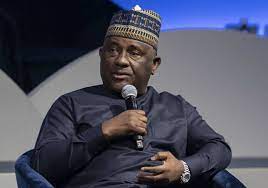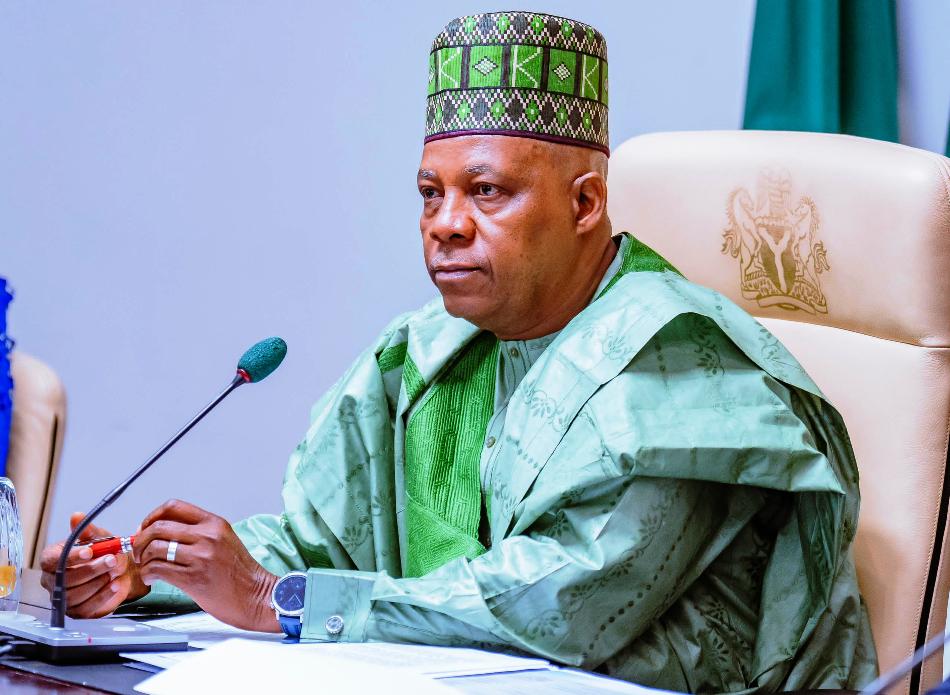The Nigeria National Petroleum Corporation Limited and the Ministry of Finance have agreed to remit all their dollar revenues to the Central Bank of Nigeria, CBN, to boost the nation’s External Reserves and foreign exchange flows into the country.
The apex bank’s governor, Olayemi Cardoso, disclosed this during his keynote speech at the launching of the Nigerian Economic Summit Group macroeconomic outlook report for 2024 on Wednesday.
He declared, “I am pleased to note our collaboration with the ministry of finance and the NNPCL to ensure that all FX inflows are returned to the CBN. This coordinated effort will enhance the bank’s FX inflows and contribute to the growth of reserves.”
The governor, who was speaking on the efforts of the bank to address FX challenges in the country, noted that stability is expected in the foreign exchange market in 2024 due to a combination of factors.
Cardoso stated, “The expected stability in the FX market for 2024 can be attributed to the reduction in petroleum product import and the recent implementation of the market-determined exchange policy by the CBN. This reform is designed to streamline and reform multiple exchange rates.
“The resulting consistent and stable exchange rate will not only boost investors’ confidence but also attract foreign investment alleviating Nigeria’s appeal to global investors.”
According to the governor, the CBN is currently implementing a comprehensive strategy to improve FX liquidity in the short, medium, and long-term.
He said the naira was currently undervalued and with coordinated measures from both the fiscal and monetary side, it would experience genuine price discovery in the near term.
He re-echoed that the bank was clearing its backlog of FX transactions.
He said, “In our efforts to stabilise the exchange rate, we must prioritise transparency and create a market environment that creates a fair determination of exchange rates ensuring stability for businesses and individuals alike.”
Recently, the World Bank disclosed at the launch of its Nigeria Development Update, December 2023 edition titled, ‘Turning The Corner (from reforms and renewed hope, to results)’ that the NNPCL has not been transparent about dollar revenue especially financial gains from fuel subsidy removal.
The global bank stated, “Except for the exchange rate-related increases, however, there is a lack of transparency regarding oil revenues, especially the financial gains of the Nigeria National Petroleum Corporation from the subsidy removal, the subsidy arrears that are still being deducted, and the impact of this on Federation revenues.”
Also speaking at the event, the Minister of Finance and Coordinating Minister of Economy, Wale Edun, stated that the government was ready to scrutinise revenue flow from NNPCL.
Fuel price fall
During his keynote speech on Wednesday, Cardoso revealed that there are expectations that the pump prices of fuel will fall this year because of the anticipated operations of local refineries in the country.
The apex bank governor said, “The anticipated moderation in pump prices of PMS due to the expected operational state of the country’s three government’s refineries and private owned refineries in 2024 is a pivotal factor in the economic situation.
“The economic stabilisation or reduction in fuel cost is poised to have far-reaching implications across various sectors contributing significantly to overall economic efficiency and resilience.”
The governor in his comments on inflation revealed that the bank hopes to tame inflation, that is currently at 28.92 per cent as of the end of December 2023, to 21.4 per cent in 2024.
He explained, “Inflationary pressures are expected to decline in 2024 due to the CBN inflation targeting policy which aims to rein in inflation to 21.4 per cent. This will be aided by improved agricultural productivity and the easing of global supply chain pressures benefitting businesses by boosting consumer confidence and purchasing power.”
He noted that the CBN’s adoption of inflation targeting framework involves clear communication, use of monetary policy instruments, and collaboration with fiscal authorities to achieve price stability.
He added, “The outlook for decreasing inflation in 2024 will have a profound impact on businesses providing a more predictable cost environment and potentially leading to lower policy rates, stimulating investment, fueling growth, and creating job opportunities.
“Additionally, the bank has reverted to the conventional monetary policy approach with a focus on attaining price stability which fosters sustainable economic growth for Nigeria.”
Cardoso, who is making his first public comments on the economy in 2024, stated that the country hopes to grow its economy by 3.76 per cent in 2024, which is underpinned by the implementation of key government reforms.
He commented, “Foremost among the factors contributing to this positive outlook is the expectation of improved crude oil prices and production, highlighting the crucial role the oil industry is expected to play in driving economic growth.”
He highlighted the anticipated positive outlook for industry, services, agriculture, mining, electricity, gas, and water supply sub-sectors.
In his concluding remarks, Cardoso stated that the economy was at a point of stabilisation. In a pitch to investors, the CBN governor said, “Investors, both local and foreign, as well as other stakeholders, can rest assured that the economy will transition to a new state of stability in the short to medium term as we recalibrate our policy tool kit and implement far-reaching measures.”






